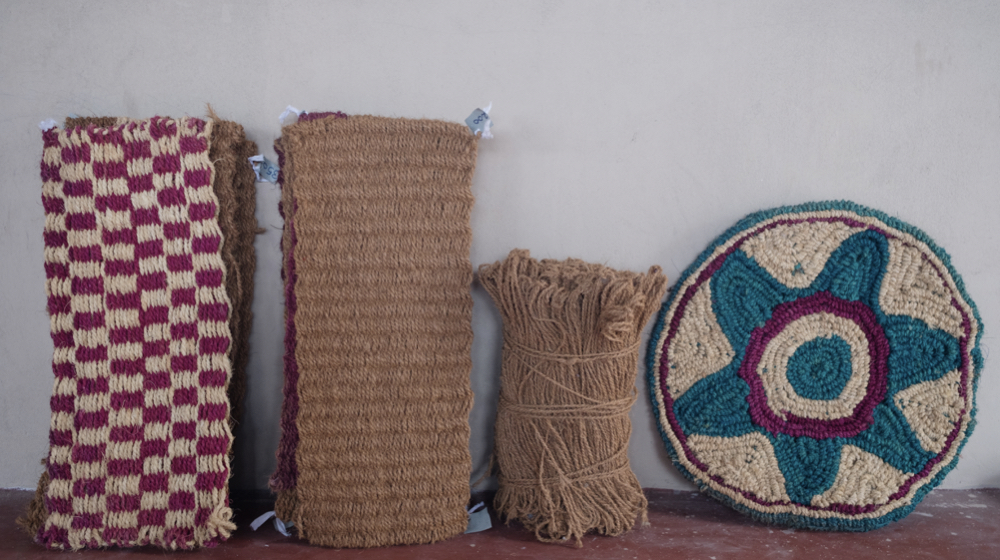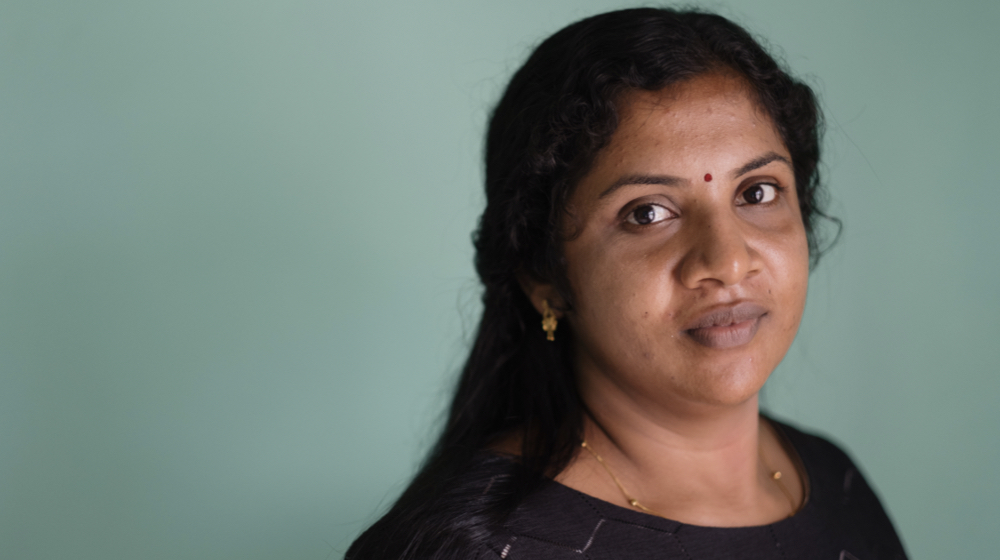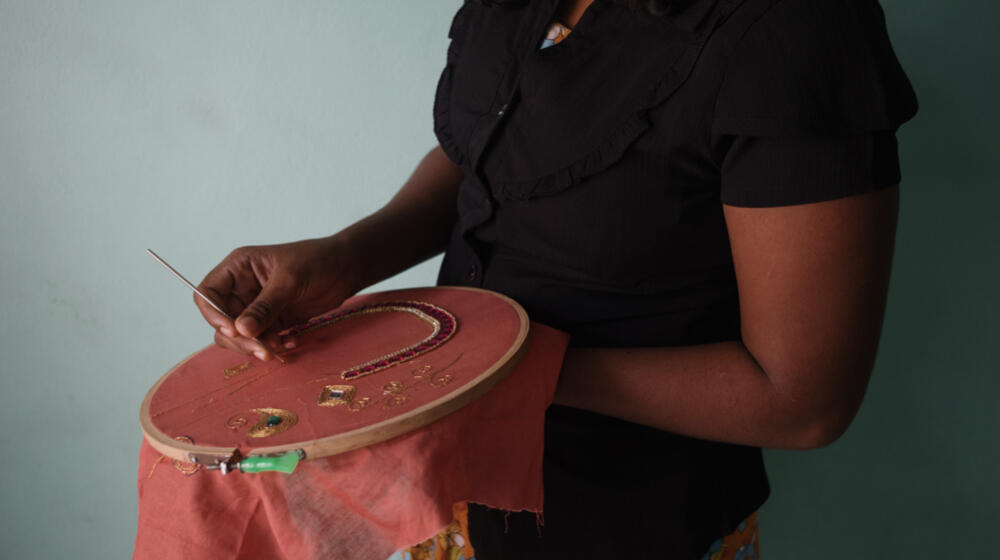“All the girls who come here have been through many problems and are in a lot of pain,” says Rangi.* She is 21 and has been living at a shelter for survivors of gender-based violence for over a year. “When I focus on sewing, I feel calm and relaxed. I do not focus on my problems, I can focus on the task.”
“All the girls who come here have been through many problems and are in a lot of pain.”
-Rangi* survivor of gender-based violence
The economic crisis has led to a range of problems including government funding shortfalls for all health services, even essential services like safe houses for women. With no funding this year and a reduced salary for staff, the Jaffna Social Action Centre where Rangi stays is unable to get the supplies for her to teach other women life skills that help them earn an income.
Before the crisis, the centre was equipped to provide training to help women become financially independent. “We used to make doormats,” says Rangi, “we had the machines and equipment. We no longer have the ropes and colouring. If we had resources, we could teach other girls who will come here in the future.”

UNFPA has been supporting seven shelters since mid-June this year. Francine Princey from Jaffna is a case manager at the safe house where Rangi is staying. She says there has been a spike in calls since the start of the crisis in Sri Lanka. “Without money, many families have problems,” Francine says. “Labourers are unable to get a job and families faces difficulties, including violence in some cases.”
Despite UNFPA’s funding to keep the doors open, most staff at the shelters cannot continue to work for a fraction of their pre-crisis salaries. As a result of months of shortfalls, the shelter has been forced to close down services such as psychosocial counselling and skills training. Staffing and funding issues mean the centre may soon be forced to operate without a house warden or even security at the gate.
“I told her we do not have enough funds to bring her to the shelter.”
-Francine Princey, case manager at the safe house
Francine lives nearby so she can walk to work, but she admits that the challenges are multiplying as funding becomes scarce and the centre can no longer offer the basics, such as providing transport to survivors that call for urgent protection.
“A woman in need called me with a domestic problem,” Francine says. “When there is domestic violence, women need to stay in a safe house. She asked me for transport, but I told her we do not have enough funds to bring her to the shelter.”

With limited fuel and high transport costs, women are only driven to the shelter by government vehicles following court orders to protect survivors. Francine worries that even when they get to the shelter, without the counselling and support, the centre will not be able to help the women recover in the same way.
Years of experience working with survivors of gender-based violence showed her what is possible when women get the right support. “When women came here before the crisis, we taught them skills and helped them learn how to navigate challenging circumstances.”
To ensure women continue to receive this crucial support, UNFPA has launched an appeal for US$ 10.7 million to deliver lifesaving health care and protection services to women and girls in Sri Lanka. Through the response UNFPA plans to provide 286,000 women and girls with information on gender-based violence prevention, and available services and support, as well as lead and coordinate activities to strengthen prevention, protection and referral systems for survivors of gender-based violence.
To support Rangi and other women and girls across Sri Lanka, donate here.
* not her real name
Learn more
This work is supported in part with funds from the Government of Australia, Department of Foreign Affairs and Trade.
One mother’s fight for a safe delivery: What it’s like to give birth in Sri Lanka right now


